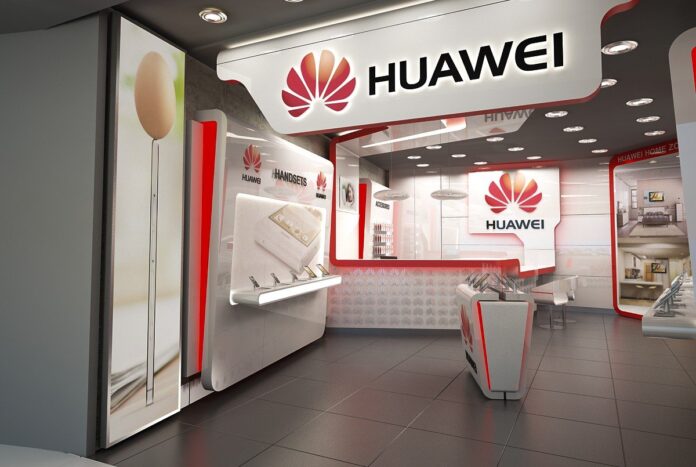In a financial world that’s developing at unprecedented pace, simply keeping up is a challenge in itself. So how can banks thrive and move ahead?
JOHANNESBURG, South Africa, September 29, 2022/ — Staying in front of the technology curve is now critical. To set itself apart in the digital era, any bank needs cutting-edge technologies that allow it to quickly and securely respond to customer demands.
But with mobile Internet and Financial Technology (FinTech) giants beginning to throw their weight around — offering new and ever higher levels of data processing, analysis, and customer service — many banks’ data storage systems are being pushed well beyond their limits.
Established in 2006, Nigeria’s Unity Bank is one of the top commercial banks in the country, so it’s no stranger to Information and Communications Technology (ICT) challenges. Unity has a singular, unifying vision that lies at the core of everything it does: to be the retail bank of choice for all Nigerians.
With banking transaction surges causing core system performance bottlenecks on its legacy network, affecting service efficiency and the customer experience, Unity knew it was time to act.
Performance Issues Are the Top Priority
Unity has two data centers: one is located in the capital, Abuja, and the other is in the country’s largest city, Lagos. In 2014, the bank deployed storage and network equipment from a range of mainstream vendors. This legacy equipment proved no match for the transaction data surges of recent years. Devices on its legacy network faced slowing transaction application response times, long service rollout periods, and a range of other issues, failing to meet the service performance requirements of Unity’s Information Technology (IT) network.
Unwilling to let the issues compound, nor make sacrifices that would impact the customer experience, the bank committed in 2020 to upgrading its core system infrastructure, in order to meet the business development needs of the next five years and beyond.
“Taking into account long-term business growth, we had to act and revamp and upgrade our IT systems,” Ebenezer Kolawole, Executive Director and Chief Financial Officer (CFO) of Unity Bank explained. “Therefore, the first thing we wanted to do was build a faster and more stable core banking system at the network and storage layers.”
Boosting IT Efficiency with Huawei, Now and in the Future
To find the best IT solution, Unity conducted Proof of Concept (PoC) tests with a range of vendors. The results spoke for themselves: Huawei’s OceanStor Dorado all-flash storage outperformed competing vendors across the board. For example, in the POC test environment, the core banking system processing time was slashed from 10 hours to just 30 minutes, going way beyond Unity’s expectations.
Unity’s team wasn’t only impressed by Huawei’s technological prowess. Its customer service stood out, too. “Huawei staff are really just like their corporate culture says — always customer-centric,” Kolawole noted. Such benefits made Unity’s decision an easy one: Huawei’s solution was the best option to replace the legacy storage systems and host the core systems.
This decision is already paying off as Unity pushes ahead with its future-proofing process. Huawei provided high-performance OceanStor Dorado systems to carry multiple core applications — such as the transaction database — in order to accelerate core data processing and analysis while slashing system latency. This has also allowed the transaction database to be accessed by more users concurrently, greatly increasing Transactions Per Second (TPS).
“Before OceanStor Dorado systems were deployed, all systems in our banks had to reserve one day every month to process monthly settlements. But with OceanStor Dorado, we can complete our monthly settlement in 1 hour instead of the 8 hours it used to take,” Kolawole noted. “That means that we no longer need to close the business for a day, which we used to have to do. So we are impressed by the quality of Huawei’s all-flash storage technologies, which have made our IT systems much more reliable and efficient.”
Unity’s new storage solutions have not only helped it address past challenges. They are also helping it prepare for future business development. The bank has implemented active-passive Disaster Recovery (DR) between its Abuja and Lagos data centers, ensuring up to 99.9999% reliability. And this deployment has also provided room for a future upgrade when necessary, to active-active or geo-redundant Three-Datacenter (3DC) DR. Furthermore, OceanStor Dorado supports online performance and capacity expansion as demand grows, protecting Unity’s long-term investment and ensuring the bank can cope with heavier data loads over the next 5 to 10 years. This, alongside Huawei’s three-year warranty, stands Unity in good stead for the future, and ensures that the Service Level Agreement (SLA) of core applications can always be achieved.
Huawei’s all-flash solution is helping Unity build a cost-effective flash resource pool. It’s also improving the performance of its IT infrastructure and helping it transform toward more customer-centric services, including credit cards, online payments, and mobile banking. Equipped with its upgrades, Unity will move further along its financial digital transformation path and create a new, future-proofed business landscape, from which it can claim success.













































